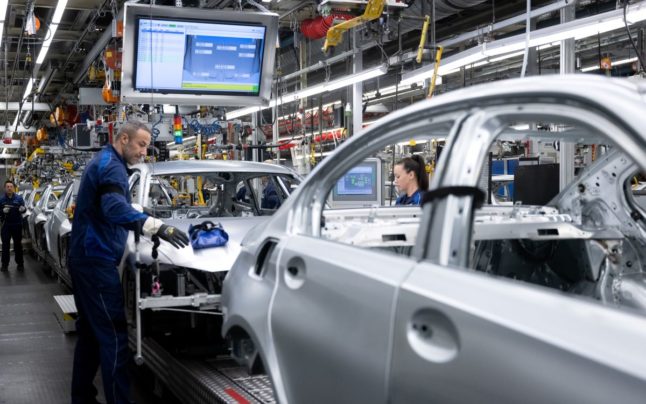The German economy has been struggling since Russia’s 2022 invasion of Ukraine sent inflation soaring, with the crisis compounded by an industrial slowdown and weakness in key trading partners.
After contracting 0.3 percent in the final quarter of 2023, output is “likely to once again decline slightly” from January to March, the Bundesbank said in its monthly report.
“This second consecutive decline in economic output would put the German economy into a technical recession.”
READ ALSO: Why is Germany stuck in recession – and how long might it last?
The central bank listed a litany of problems facing the export powerhouse, from slowing foreign demand to constrained consumer spending and domestic investment.
The economy may also be impacted by a wave of recent strikes, particularly those in the rail and aviation sectors, it said.
However it added there was “still no evidence of a recession in the sense of a persistent, broad-based and distinct drop in economic activity, nor is such a recession currently on the cards”.
A robust labour market, rising wages and slowing inflation would provide support, it said.
READ ALSO: ‘Tired’ German economy needs reforms, says finance minister
Following a series of interest rate hikes, German inflation slowed to 2.9 percent in January — not far off the European Central Bank’s two-percent target.
The German economy shrank 0.3 percent across the whole of last year. While it is expected to rebound this year, observers have recently been cautioning the recovery may be slower than previously expected.
In December, the Bundesbank slashed its 2024 growth forecast to 0.4 percent, from a prediction of 1.2 percent in June.



 Please whitelist us to continue reading.
Please whitelist us to continue reading.
Member comments